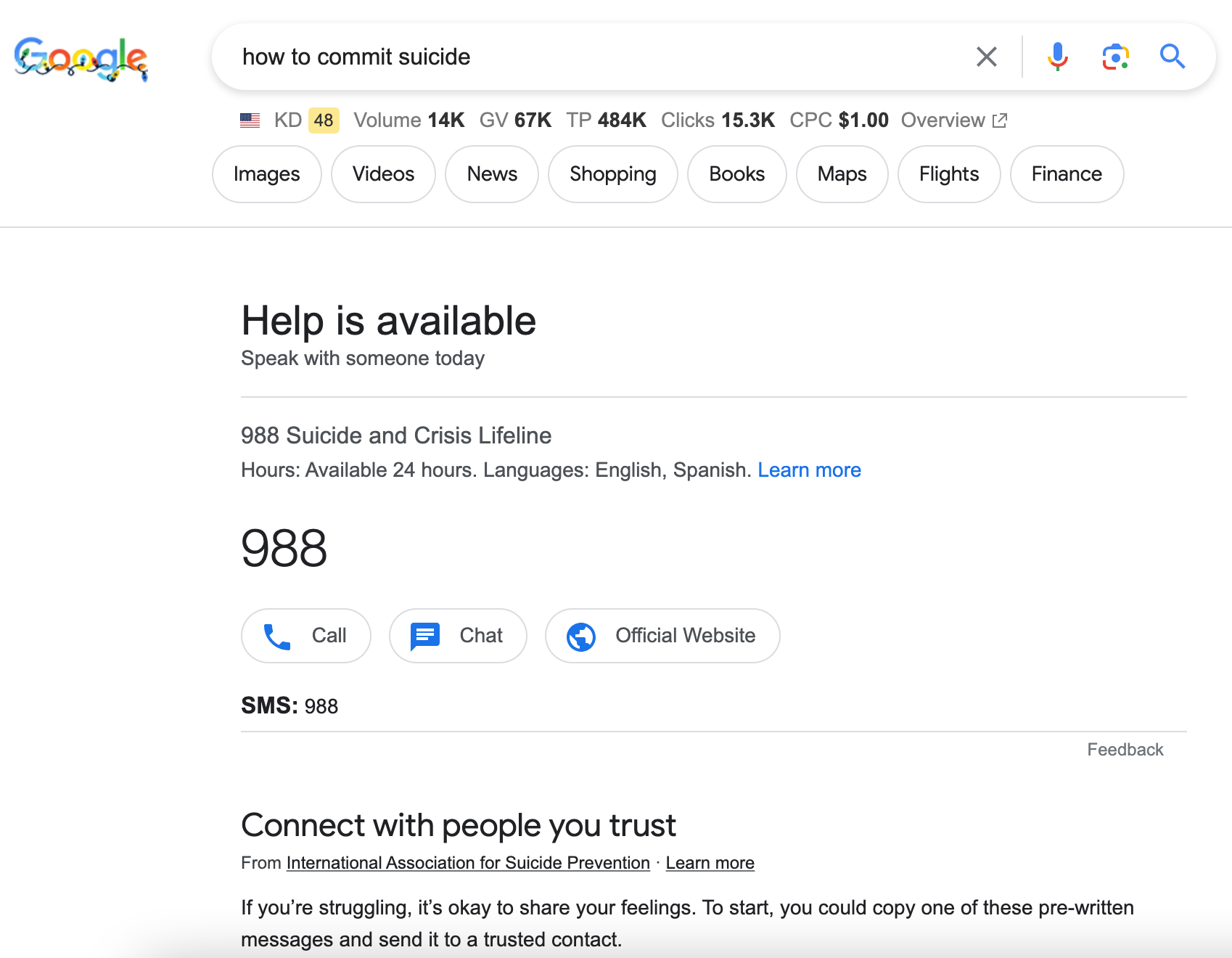Have you ever wondered how Google manages to provide you with the most relevant search results? Or how certain websites consistently rank at the top of search engine results pages (SERPs)? The answer lies in Google’s complex ranking systems, which are designed to ensure that users receive the most pertinent and beneficial results. As a website owner or digital marketer, understanding these systems and their impact on search engine optimization (SEO) is crucial for success in today’s competitive online landscape, especially when it comes to Google ranking factors.
In this blog post, we’ll explore the various ranking factors and systems employed by Google, including BERT, MUM, and RankBrain, among others. We’ll also discuss how these systems impact SEO and what you can do to optimize your website for better visibility and rankings, with a focus on Google ranking factors. So, let’s dive into the world of Google’s ranking systems and uncover the secrets to achieving that coveted first-page ranking.
Key Takeaways
Understand Google’s Search Ranking Systems and their influence on SEO.
Leverage AI systems like BERT, MUM, RankBrain and Passage Ranking to optimize content for improved visibility in search results.
Focus on creating reliable content that meets Google’s criteria of expertise, authoritativeness and trustworthiness for better rankings.
Introduction to Google’s Search Ranking Systems

Google’s Search Ranking Systems comprise the various factors and systems that determine the order of content displayed in search results. These systems ensure that users receive the most relevant and useful information based on their search queries. Grasping these ranking systems’ complexities is beneficial for website owners and digital marketers, enabling them to enhance their sites for improved visibility and superior rankings on Google and other search engines.
There are three primary types of ranking factors: technical, on-page, and off-page factors. To secure a higher rank on Google, it’s crucial to take into account all aspects, such as creating high-quality content, tailoring your site for mobile devices, and guaranteeing a swift page loading speed. We will subsequently delve into various ranking systems, including BERT, RankBrain, and MUM, to assist you in comprehending their influence on SEO and how to optimize your website accordingly.
As we examine these ranking systems, you’ll acquire useful knowledge about Google’s search algorithms’ inner mechanics and their content evaluation and prioritization methods. By comprehending these systems, you’ll be more prepared to make enlightened choices regarding your SEO strategy and produce content that appeals to your target audience and meets the requirements of Google’s continually changing ranking systems.
Understanding BERT in Google’s Ranking
BERT, short for Bidirectional Encoder Representations from Transformers, is an AI system that helps Google better understand the context and intent behind search queries, ultimately leading to improved search results. Launched in 2019, BERT represents a significant advancement in Google’s understanding of natural language and has a considerable impact on search rankings.
What sets BERT apart from previous systems is its ability to analyze words in the context of other words in a sentence, taking into account the entire context of a word by assessing the words that precede and follow it. This breakthrough in natural language processing enables Google to deliver more accurate search results, particularly for longer, more colloquial queries or those where prepositions are crucial.
Avoiding keyword stuffing and concentrating on generating valuable content allows you to harness BERT’s power to enhance your website’s search rankings through effective keyword research.
Crisis Information Systems in Google Search

During personal crises or natural disasters, receiving timely and pertinent information is vital. Google’s Crisis Information Systems are designed to provide users with the information they need in such situations, including topics such as:
Suicide
Sexual assault
Substance use disorder
Poisoning
Prioritizing credible and current information, Google guarantees that users can locate the assistance they require at the most critical times.
Google obtains crisis information through partnerships with well-known crisis support services. To ensure the accuracy and usefulness of this information, Google encourages users to submit feedback on the crisis information provided in search results. Refining its crisis information systems, Google aids users in desperate situations and contributes to a safer, more knowledgeable online experience.
Deduplication Systems and Their Impact on SEO
Duplicate content can be detrimental to a website’s search rankings, as it can lead to confusion and a poor user experience. To address this issue, Google employs deduplication systems, which identify and remove duplicate content within search results, ensuring that only the most relevant and unique content is displayed to users.
Google’s deduplication systems improve the overall quality and preciseness of search results and positively influence SEO by eliminating duplicate content. Ensuring that your website showcases original and valuable content allows you to sidestep the drawbacks of duplicate content and sustain a robust presence in search engine results.
Exact Match Domain System: Balancing Relevance and Quality

Exact match domains (EMDs) are domain names that precisely match specific search queries, which, in the past, could lead to artificially boosted search rankings. However, Google’s approach to EMDs has evolved over time, with the search giant now placing more emphasis on the quality and relevance of the content hosted under these domain names.
Google launched the EMD update in 2012, aiming to diminish the prevalence of spammy or subpar exact match domains on the search engine results pages (SERPs). By considering factors such as relevance and quality, alongside the domain name itself, Google ensures that websites with exact match domains do not receive an undue advantage in search rankings.
This method to EMDs underscores the significance of generating high-quality, pertinent content for your website, irrespective of your domain name.
Leveraging Freshness Systems for Timely Content
Google’s freshness systems prioritize recent content for specific queries, such as news articles, reviews, and events. For instance, when someone searches for a newly released movie, Google will prioritize the most recent reviews and articles over older content from earlier in the production process. By ensuring that users receive the most up-to-date information, Google improves the overall search experience.
Keeping fresh content is vital for transmitting positive ranking signals to search engines such as Google. Regularly updating your website with fresh and pertinent content can enhance your search rankings and keep you ahead of competitors. Moreover, tools like Google Trends are useful in identifying prevalent queries related to your topic, guaranteeing that your content stays current and captivating for your target audience.
Google’s Helpful Content System and SEO

Producing original, useful content benefits your website’s users and significantly influences search engine rankings. Google’s Helpful Content System gives priority to content that offers value to users and exhibits expertise, authoritativeness, and trustworthiness (E-A-T). By focusing on creating high-quality content that meets these criteria, you can improve your website’s ranking in Google and other search engines.
Tailoring your website for mobile devices is also pivotal for search engine optimization success, as a larger number of users access the web from mobile devices over desktops. Google has implemented a mobile-first indexing approach, which means that the search engine evaluates the mobile version of your website for ranking purposes. Ensuring that your website is fully optimized for mobile devices is essential for maintaining a strong presence in search engine results.
Incorporating outbound links to pertinent, authoritative sources is another vital component of creating useful content. By linking to reliable sources with high domain authority, you demonstrate that you are creating quality content for your visitors. However, be sure to only link to trustworthy sources, as low-quality links can negatively impact your search rankings. Additionally, utilizing internal links within your website can further enhance user experience and navigation.
Link Analysis Systems and PageRank: A Core Element of SEO
Link analysis systems like Google’s PageRank have a significant part in ascertaining the importance and relevance of web pages in search results. PageRank evaluates the quantity and quality of links pointing to a specific web page, which helps Google assess the page’s relative importance and rank it accordingly in search results.
Anchor text, the visible and clickable text in a hyperlink, is another key aspect of link analysis systems. Google takes into account the anchor text of links when determining the relationship between the page the link appears on and the page it points to. By carefully crafting your anchor text and linking to relevant, authoritative sources, you can improve your website’s search rankings and provide a better user experience.
Exercising caution when building backlinks to your site is important, as acquiring links from subpar sources or spam links can result in penalties and adversely affect your search rankings. Focus on earning high-quality, natural backlinks from reputable websites to boost your website’s authority and improve your search rankings.
Local News Systems: Enhancing Local SEO
Google acknowledges the significance of local news sources and has endeavored to highlight these sources in search results for relevant queries. By featuring local news stories and prioritizing authoritative local news sources, Google helps users find the most relevant and timely information for their location.
One way Google enhances its local news systems is by refining its ability to understand topics beyond general categories and including more specific subtopics. This allows the search engine to surface a broader range of content, including local news stories and resources. By focusing on creating high-quality, locally relevant content, you can improve your website’s visibility in Google’s local search results and better serve your target audience.
MUM and Neural Matching: Advanced AI in Google Search
Cutting-edge AI systems such as MUM (Multitask Unified Model) and neural matching are transforming how Google processes and understands search queries. MUM is a more powerful AI model than BERT, capable of comprehending and generating language across multiple modalities, such as text and images. Neural matching, on the other hand, helps Google understand how queries relate to pages by examining the broader representations of concepts in the query and page.
By leveraging advanced AI systems like MUM and neural matching, Google can deliver more accurate and relevant search results for users. These systems also enable the search engine to better understand the context and intent behind search queries, leading to an improved user experience.
For a website owner or digital marketer, keeping up-to-date with the latest AI advancements and their effect on search rankings is crucial for sustaining a competitive advantage in the constantly changing SEO landscape.
Prioritizing Original Content: A Key SEO Strategy
Original reporting and content creation are vital for securing high search rankings on Google. By prioritizing original content, you not only provide valuable information to your users but also send positive signals to search engines, which reward websites that publish high-quality, unique content.
Google has implemented changes to its search rater guidelines and ranking updates to better recognize and showcase original reporting in search results. By focusing on creating original, insightful content and conducting thorough research, you can improve your website’s visibility in Google rankings and establish yourself as an authoritative source of information in your niche. Utilizing tools like Google Search Console can further enhance your optimization efforts.
Navigating Removal-Based Demotion Systems
Google’s removal-based demotion systems play a significant role in preserving the quality and relevance of search results. These systems are designed to penalize websites with a high volume of content removal requests, which may indicate the presence of problematic content or practices.
Avoiding penalties and maintaining a robust search ranking requires website owners to address and rectify any content removal requests they receive. By adhering to Google’s guidelines and focusing on creating high-quality, unique content, you can minimize the risk of removal-based demotions and ensure your website remains a trusted source of information.
Passage Ranking System: Optimizing for Specific Queries
Google’s passage ranking system is designed to:
Identify and assess the relevance of individual sections of a web page
Allow the search engine to provide better search results for specific queries
Evaluate the relevance of particular passages on web pages
Surface more accurate and useful information for users, especially when it comes to complex or multi-faceted queries.
The passage ranking system signifies a substantial progression in Google’s capacity to comprehend and provide pertinent content to users. By optimizing your website’s content for specific queries and ensuring that each section of your web page provides valuable information, you can benefit from the power of the passage ranking system and improve your pages ranking as well as search rankings.
RankBrain: Enhancing Content Relevance through AI
Another AI system that Google uses to enhance the relevance of search results is RankBrain. By analyzing the context and meaning of combinations of words in a query, RankBrain is able to better understand the relationship between words in a sequence, ensuring relevant words are not omitted from search results.
As part of an ensemble of AI systems, RankBrain works alongside other technologies like BERT and MUM to provide users with high-quality search results. By understanding the role of RankBrain in Google’s search algorithms and creating content that aligns with its criteria, you can enhance the relevance of your website’s content and improve your search rankings.
Ensuring Reliable Information: A Ranking Factor
Google gives preference to reliable information in its search rankings, placing a strong focus on factors related to expertise, authoritativeness, and trustworthiness (E-A-T). By ensuring that your website’s content meets these standards, you not only provide users with valuable information but also improve your search rankings.
To evaluate the quality of search results, Google engages over 10,000 search quality raters who assess content based on E-A-T criteria. By focusing on creating high-quality, original content that demonstrates expertise and trustworthiness, you can establish your website as a reliable source of information and achieve higher rankings in Google’s search results.
Google’s Reviews System: A Guide for High-Quality Content
Google’s Reviews System is an automated evaluation of review content used to determine content ranking. By recognizing and rewarding reviews that offer meaningful analysis and original research, Google helps users find the most valuable and useful information.
To gain from Google’s Reviews System, concentrate on creating high-quality, insightful reviews that deliver value to your readers. By conducting thorough research and offering in-depth analysis, you can ensure your website’s content not only meets the standards of Google’s Reviews System but also provides a valuable resource for your audience.
Understanding Google Page Experience for Better Rankings
Google’s Page Experience update, encompassing Core Web Vitals, is a critical ranking factor that targets enhancing the user experience on websites. By focusing on providing an optimal page experience across various aspects, such as page speed, mobile-friendliness, and accessibility, you can enhance your website’s visibility and rankings in Google search results.
Mobile-first indexing is a key aspect of Google’s approach to page experience. With more users accessing the web from mobile devices rather than desktops, it’s crucial for website owners to optimize their sites for mobile users. By ensuring that your website is fully optimized for mobile devices, you can maintain a strong presence in search engine results and provide a better user experience for your audience.
Additionally, focusing on Core Web Vitals can significantly improve your website’s performance. Core Web Vitals measure user experience on your page, including factors such as loading speed, interactivity, and visual stability. By monitoring and optimizing these metrics, you can improve your website’s search rankings and overall user experience.
Retired Systems
While Google’s ranking systems continue to evolve, recognizing the contributions of retired systems like Hummingbird, Panda, and Penguin, which played significant roles in shaping the search landscape, remains important. Introduced between 2011 and 2013, these systems focused on improving the relevance and quality of search results by addressing issues like low-quality content, spammy links, and keyword stuffing.
Understanding the historical impact of these retired systems can provide valuable context for the ongoing evolution of Google’s search algorithms and ranking systems.
Summary
In conclusion, Google’s Search Ranking Systems play a crucial role in determining the visibility and success of websites in search engine results. By understanding the various ranking factors and systems, such as BERT, MUM, RankBrain, and Page Experience, you can optimize your website for better search rankings and provide a more engaging user experience.
As a website owner or digital marketer, staying informed about the latest advancements in AI and their impact on search rankings is essential for maintaining a competitive edge in the ever-evolving world of SEO. By focusing on creating high-quality, original content that meets the demands of Google’s ranking systems, you can establish your website as a trusted source of information and achieve higher rankings in search results.
By implementing the strategies and techniques discussed in this blog post, you can not only improve your website’s search rankings but also provide a better user experience for your audience. So, why wait? Start optimizing your website for Google’s Search Ranking Systems today and unlock the full potential of your online presence.
Frequently Asked Questions
How google ranks websites?
Google uses web crawlers to scan and index webpages, then using an algorithm with over 210 factors, orders them according to relevance and usefulness to the end user. Additionally, data from aggregated and anonymized interactions are transformed into signals which help Google’s machine-learned systems better estimate relevance. These factors all combine to determine how pages are ranked on search engine result pages.
How does google analyze words?
Google analyzes words to determine relevance and rank content for search intent. Its indexing system visits websites and crawls pages, processing text and key content tags to understand the page’s subject matter. This allows it to translate words into numerical values and represent them as points in space on a diagram.
What are the main types of ranking factors in Google’s Search Ranking Systems?
Google’s Search Ranking System is primarily determined by three factors – technical, on-page and off-page – which all contribute to website visibility and success in search engine results.



